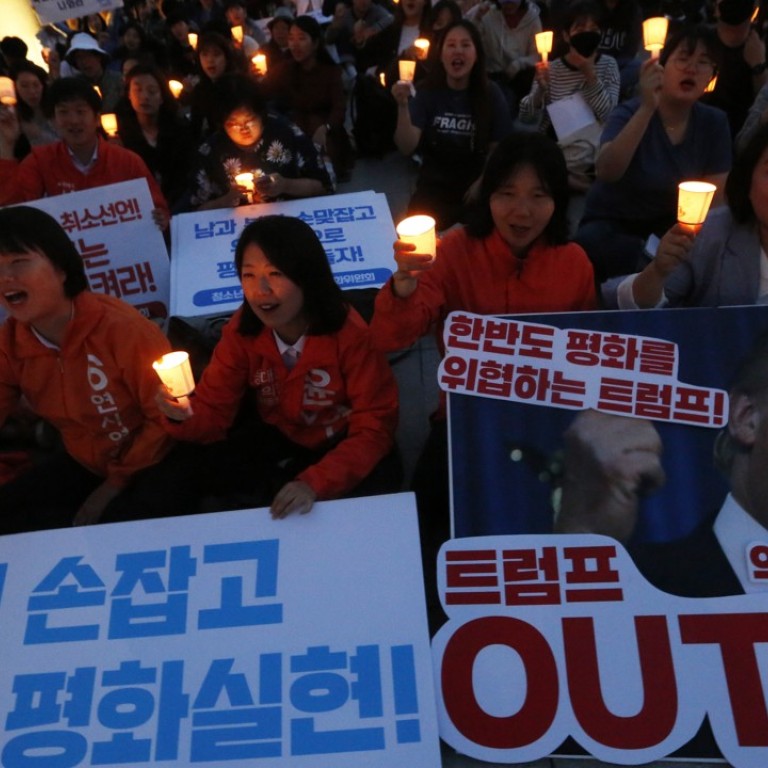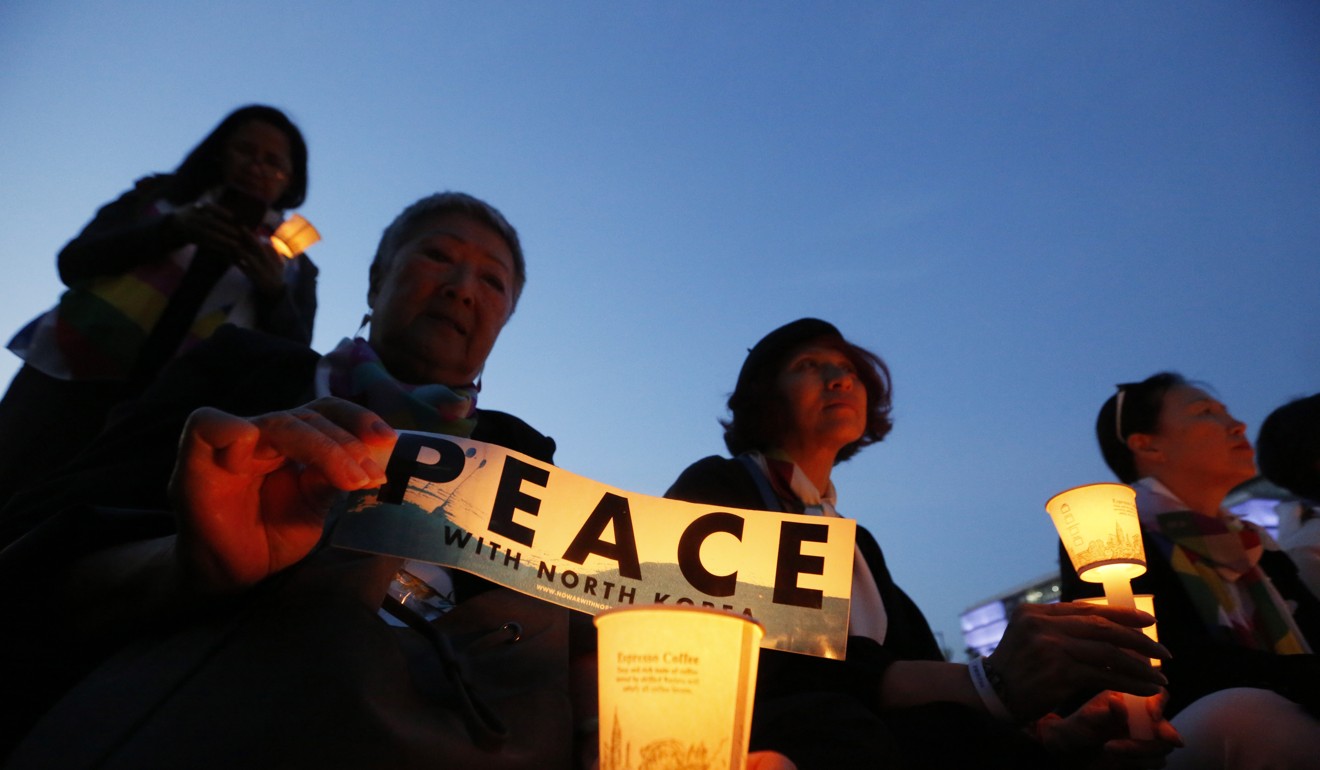
Summit may have been called off, but not all hope is lost
Donald Trump and Kim Jong-un could yet meet as long as some patience and pragmatism are shown
Expectations that the threat to peace and stability posed by North Korea’s nuclear weapons would soon be vanquished may appear to some to have been dashed.
The letter that US President Donald Trump sent to Kim Jong-un calling off the summit planned for Singapore on June 12 blames the North for “tremendous anger and open hostility”.
Caught off guard by meeting collapse, Seoul tries to play down impact
For long-time observers of the Korean conflict, the development is not surprising; the nations have had seven decades of fraught relations. But for all the finger-pointing and negative sentiment, the window of opportunity is still ajar, with both sides continuing to express a willingness to meet.
Trump said that given sentiments expressed by Pyongyang, a meeting with Kim was “inappropriate, at this time”. North Korea has said it is willing to talk “at any time in any form”.
In a show of claimed faith, on Thursday before a group of invited foreign journalists, it apparently destroyed its only nuclear test site. But whether it really did as it said – requests from outside atomic experts to be present were rejected – is a matter of conjecture and regardless, it still has an arsenal of nuclear warheads and the designs and ability to make more.
A Chinese foreign ministry spokesman hoped the two leaders would work for goodwill and continue the dialogue. Others were variously disappointed, Britain and Russia among them, or relieved by the announcement.
Trump says Kim summit could still happen as China worries about crossfire
Particularly dispirited was South Korean President Moon Jae-in, who was not informed of Trump’s decision in advance despite having done more than any other leader to bring about a summit; ties between his country and the US are bound to be affected.
But others contend the pause is good, giving the American leader and his administration the chance to come up with a properly formed strategy and negotiating position, matters seemingly ignored in the haste for a quick diplomatic triumph.
The biggest problem is the yawning divide in expectations of the denuclearisation of the Korean peninsula. Pyongyang has made clear it has no intention of unilaterally relinquishing its nuclear capabilities.
But the American side’s goal is for the North to scrap its nuclear programme, including its weapons, missiles, testing sites and production facilities. That gap made the likelihood of a summit breakthrough implausible.
Trump-Kim talks: the art of no deal
Initial talks between the leaders should have more modest aims. But Trump has also shown diplomatic acumen, as illustrated by his convincing the North to halt its nuclear and missile tests and his secretary of state gaining the release from the North of three American prisoners.
Talks have been cancelled, but with patience and pragmatism, there is hope that they may yet take place.


